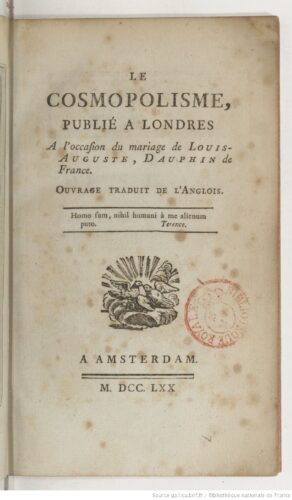New publication by postdoctoral Researcher Frank Ejby Poulsen
Frank Ejby Poulsen is behind the article "Transcending the Public and the Private: The Cosmopolitanism of Freemason Joseph Honoré Rémy", in Early Modern French Studies

We have asked Frank a few questions about his article:
Why should we read your article?
There are 2 reasons. First, this article discovers the first book written on cosmopolitanism in French (1770) and what were the principles of the first full-fledged philosophy of cosmopolitanism. Second, it challenges our perception of the private/public divide by adding the moral dimension of humanity by showing how it influences the private and public realms.
Do your findings give insights that we can use when discussing present Privacy issues?
Present privacy issues deal mostly with digital surveillance and big data and how they infringe privacy rights. One specific issue is the transborder character of infringements to privacy rights due to the transfer of data across servers from different countries. This challenges our understanding of the private and public and shows the need for legislation beyond the national level. A cosmopolitan realm is important morally, politically, and legally to enforce human rights such as the right to privacy. The study of past discussions with contemporary questions such as privacy enriches our current conversations about the issues and challenges we face. For instance, the movement for ‘humane technology’ wants to bring ethical considerations to the production of digital devices. Cosmopolitan ethics can inform legal and political decisions regarding all things digital.
More about the article:
Published in 1770, Le cosmopolisme by Joseph Honoré Rémy is the first pamphlet in French to elaborate upon a political philosophy of cosmopolitanism. I first present a biography of Rémy with original elements concerning his membership of the Freemasonic Lodge of the Nine Sisters. This article analyses his pamphlet and argues that his cosmopolitanism is a way of transcending the public and the private. Such transcendence is, I argue, achieved in two ways: first, through the authorial function of writing as a ‘cosmopolite’ and second, through an understanding of cosmopolitanism as a human fraternity inspiring private and public virtues in republican monarchies.
